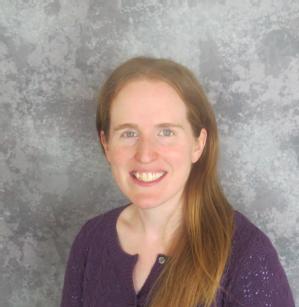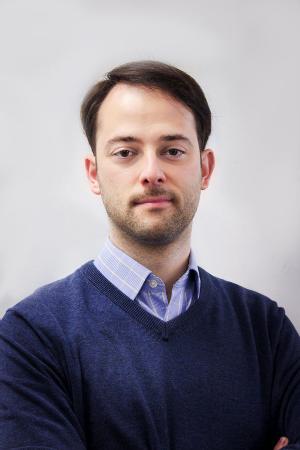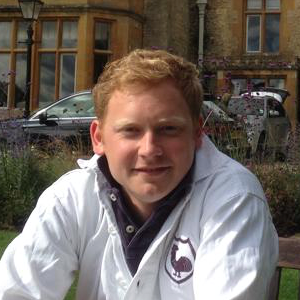Over €5 million funding for University of Warwick projects tackling sustainability and fundamental question of our universe
- Funding from European Research Council of over 5 million Euros will support three new research projects at University of Warwick
- SHINE project will investigate promising new material for solar energy conversion
- The DeepSpark project will develop machine learning algorithms to simulate sustainable chemical catalysis based on light
- Data from the Large Hadron Collider will be used by the KstarKstar project to help understand matter-antimatter asymmetry of the universe
Three new research projects at the University of Warwick that will investigate new avenues for a sustainable future as well as a fundamental question of our universe’s past have been awarded a total of more than €5 million in European Research Council Starting Grants.
Following the first call for proposals under the EU’s new R&I programme, Horizon Europe, €619 million will be invested in excellent projects dreamed up by 397 scientists and scholars. Grants worth on average €1.5 million will help ambitious younger researchers launch their own projects, form their teams and pursue their best ideas. The selected proposals cover all disciplines of research, from the medical applications of artificial intelligence, to the science of controlling matter by using light, to designing a legal regime for fair influencer marketing.
The SHINE project (Shining Light on Metal Halide Perovskite Stability with Nanoscale Optical Microscopy and Ultrafast Spectroscopy), led by Dr Rebecca Milot of the University of Warwick’s Department of Physics, has received €2,473,363 and will investigate one of the most promising new materials for solar energy conversion, metal halide perovskites. The SHINE project will pioneer the combined use of THz and photoluminescence (PL) scattering near-field microscopy (SNOM) to map static and dynamic optoelectronic properties at the nanoscale.
 Dr Rebecca Milot said: “Developing new and more efficient sources of clean, renewable energy is vital to mitigating the detrimental effects of climate change. I am very pleased to receive this funding because it will enable us to look at fundamental properties of some of these materials in a much more targeted and detailed manner to hopefully accelerate the process of the development of better materials.”
Dr Rebecca Milot said: “Developing new and more efficient sources of clean, renewable energy is vital to mitigating the detrimental effects of climate change. I am very pleased to receive this funding because it will enable us to look at fundamental properties of some of these materials in a much more targeted and detailed manner to hopefully accelerate the process of the development of better materials.”
Funding of €1,494,483 has been awarded to the project ‘Deep learning enabled simulation of plasmonic photocatalysis’ (DeepSpark) led by Dr. Reinhard J. Maurer from the Department of Chemistry, which will focus on studying an emerging type of chemical catalysis called plasmonic photocatalysis that is promoted by light. New simulation methodology will be created by training deep machine learning algorithms to understand and predict the quantum interaction of light, molecules, and metal catalysts and contribute to the development of new processes and materials for sustainable and carbon-neutral fuel and fertilizer production.
 Dr Reinhard Maurer said: “Our goal is to create machine learning methods that can understand the rules of quantum mechanics to rapidly predict the possible outcomes of chemical reactions. This approach will have potential applications far beyond plasmonic photocatalysis. Developing this approach will take time and requires building an interdisciplinary team, which is made possible thanks to the flexible and long-term funding provided by the European Research Council.”
Dr Reinhard Maurer said: “Our goal is to create machine learning methods that can understand the rules of quantum mechanics to rapidly predict the possible outcomes of chemical reactions. This approach will have potential applications far beyond plasmonic photocatalysis. Developing this approach will take time and requires building an interdisciplinary team, which is made possible thanks to the flexible and long-term funding provided by the European Research Council.”
€1,490,202 has been awarded to the KstarKstar project, led by Dr Matt Kenzie of the Department of Physics, which aims to enhance our understanding of the physics underpinning the matter-antimatter asymmetry of the universe. If matter and antimatter were created in equal amounts there would be no galaxies, stars, planets or human beings. Answering this question is fundamental in explaining how our universe arrived at its present state. The KstarKstar project will use data collected at CERN’s Large Hadron Collider beauty experiment (LHCb) with a unique pair of beauty quark decays which offer a completely new and unexplored perspective to this problem.
 Dr Matt Kenzie said: “I’m delighted the ERC have decided to fund this project and can’t wait to get started with this new program of research. This funding will allow us to hire a specialised and dedicated team to analyse a very rare and unique pair of decays, not accessible anywhere but at the LHC, which will help us to answer the most fundamental questions about the universe and to potentially find new types of elementary particles and interactions. With the Large Hadron Collider expected to start taking data again later this year, the timing of the funding could not be better.”
Dr Matt Kenzie said: “I’m delighted the ERC have decided to fund this project and can’t wait to get started with this new program of research. This funding will allow us to hire a specialised and dedicated team to analyse a very rare and unique pair of decays, not accessible anywhere but at the LHC, which will help us to answer the most fundamental questions about the universe and to potentially find new types of elementary particles and interactions. With the Large Hadron Collider expected to start taking data again later this year, the timing of the funding could not be better.”
President of the European Research Council Professor Maria Leptin said: “Letting young talent thrive in Europe and go after their most innovative ideas - this is the best investment in our future, not least with the ever-growing competition globally. We must trust the young and their insights into what areas will be important tomorrow. So, I am thrilled to see these new ERC Starting Grant winners ready to cut new ground and set up their own teams. Some of them will be coming back from overseas, thanks to the ERC grants, to do science in Europe. We must continue to make sure Europe remains a scientific powerhouse.”
- List of all selected researchers (alphabetical order)
- Lists of selected researchers by domain (alphabetical order):
- Physical Sciences and Engineering
- Life Sciences
- Social Sciences and Humanities
Ends
Notes to editors:
Summaries for each University of Warwick project, with links to accompanying images:
SHINE - €2,473,363
Shining Light on Metal Halide Perovskite Stability with Nanoscale Optical Microscopy and Ultrafast Spectroscopy” (SHINE) will investigate one of the most promising new materials for solar energy conversion, metal halide perovskites.
In the last decade, hybrid metal halide perovskite thin films have shown increasing success as active layers in solar cells, demonstrating power conversion efficiencies rivalling those of silicon. Despite these successes, issues with stability and concerns about toxicity have kept these materials from widespread commercialization. At the center of both issues is the polycrystalline microstructure inherent to these films, which introduces heterogeneity in optoelectronic properties and energy landscape and can limit charge transport and efficiency. This project will address these issues by pioneering the combined use of THz and photoluminescence (PL) scattering near-field microscopy (SNOM) to map static and dynamic optoelectronic properties at the nanoscale. Through comparison with traditional microscopy and ultrafast spectroscopy measurements (performed in the Microscopy RTP and the Warwick Centre for Ultrafast Spectroscopy), THz/PL-SNOM measurements will unravel the mechanisms whereby both intrinsic and extrinsic factors affect optoelectronic performance and will provide a roadmap for the materials engineering of stable and efficient perovskite thin films.
Download a photograph of Dr Rebecca Milot: https://warwick.ac.uk/services/communications/medialibrary/images/january_2022/rebecca_milot.jpg
DeepSpark - €1,494,483
The project “Deep learning enabled simulation of plasmonic photocatalysis” led by Dr. Reinhard J. Maurer from the Department of Chemistry will focus on studying an emerging type of chemical catalysis called plasmonic photocatalysis that is promoted by light. The aim of this computational chemistry project is to understand the atomic-scale dynamics of molecular bond breaking that can occur when light, electrons, and atoms couple in the presence of metal catalysts. To enable this, new simulation methodology will be created by training machine learning (or deep learning) algorithms to understand and predict the quantum interaction of light, molecules, and metal catalysts. By enabling the direct simulation of the motion of all particles, the project will reveal fundamental mechanisms of chemical bond activation and contribute to the development of new processes and materials for sustainable and carbon-neutral fuel and fertilizer production.
Download a sketch summarising the project: https://warwick.ac.uk/services/communications/medialibrary/images/january_2022/deepspark.png
Download a photograph of Dr Maurer: https://warwick.ac.uk/services/communications/medialibrary/images/january_2022/reinhard_maurer.jpg
KstarKstar - €1,490,202
The project aims to enhance our understanding of the physics underpinning the matter-antimatter asymmetry of the universe. If matter and antimatter were created in equal amounts there would be no galaxies, stars, planets or human beings. So answering this question is fundamental in explaining how our universe arrives at its present state. The mechanism which generates this asymmetry is still not entirely understood but one area we know it does exist is in the weak force decays of quarks, in which it can be described by just one single physical parameter. The KstarKstar project will measure this parameter from an entirely new perspective using data collected at CERN’s Large Hadron Collider beauty experiment (LHCb) with a unique pair of beauty quark decays which can resolve ambiguities in the parameter’s determination. Deviations of this parameter, and others uniquely measured by this project, from the expectation of standard particle theory (The Standard Model) would provide clear evidence of new fundamental particles never seen before.
About the ERC
The ERC, set up by the European Union in 2007, is the premier European funding organisation for excellent frontier research. It funds creative researchers of any nationality and age, to run projects based across Europe. The ERC offers four core grant schemes: Starting Grants, Consolidator Grants, Advanced Grants and Synergy Grants. With its additional Proof of Concept Grant scheme, the ERC helps grantees to bridge the gap between their pioneering research and early phases of its commercialisation. The ERC is led by an independent governing body, the Scientific Council. Since 1 November 2021, Maria Leptin is the President of the ERC. The overall ERC budget from 2021 to 2027 is more than €16 billion, as part of the Horizon Europe programme, under the responsibility of the European Commissioner for Innovation, Research, Culture, Education and Youth, Mariya Gabriel.
10 January 2022
University of Warwick press office contact:
Peter Thorley
Media Relations Manager (Warwick Medical School and Department of Physics) | Press & Media Relations | University of Warwick
Email: peter.thorley@warwick.ac.uk
Mob: +44 (0) 7824 540863
